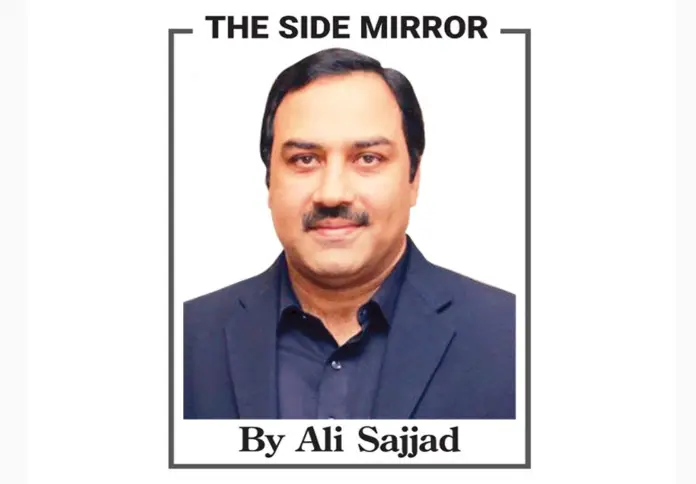Despite the filing of nomination papers being over, electioneering, or the campaigning process for political parties during elections, is still missing in Lahore and elsewhere.
Maryam Nawaz filed nomination papers without any fanfare. Not so cool.
Such an occasion could call for a power show. Perhaps, gas prices have taken a toll on election fervor too.
I observe elections keenly. Traditional electioneering in Pakistan consists of several elements, including rallies, speeches, advertising, and door-to-door campaigns.
Political rallies are one of the most prominent features of electioneering. From a candidate to a political party, every stakeholder organizes massive rallies to attract and mobilize their supporters.
During my college and university days, I used to attend such rallies, which were often held in public places, such as parks or open grounds, and they would attract a large number of people. Lately, these rallies have shifted to wedding halls, often featuring lavish dishes at the end of the rally. The rallies feature speeches by party leaders, music, and slogans. The speeches by party leaders aim to energize the supporters and convince undecided voters to vote for their party.
The speeches delivered by party leaders during the rallies are a crucial element of traditional electioneering in our part of the world. These speeches are used to inspire and motivate the supporters and to create a positive image of the party in the minds of voters. During the speeches, party leaders highlight their achievements, criticize their opponents, and make promises to address the issues that the people face. The speeches also help to shape the party’s narrative and highlight its priorities and vision for the country.
Another key element of traditional electioneering is advertising. My newspaper can be one of the beneficiaries of elections. Political parties use various forms of advertising to promote their parties and candidates. These include posters, billboards, pamphlets, and television commercials. The advertising aims to create brand recognition for the party and its candidates and to create a positive image of the party in the minds of voters.
Door-to-door campaigns are also an essential part of traditional electioneering. During these campaigns, party workers visit voters in their homes to promote the party and its candidates. The workers try to convince voters to vote for their party and answer any questions or concerns that voters may have. These campaigns allow parties to engage with voters at a personal level and create a sense of connection between the party and the people.
One of the most significant aspects of traditional electioneering in Pakistan is the use of money and resources to influence voters. Parties often use the money to buy votes, offer incentives to voters, and pay for the transportation of voters to polling stations. This practice is known as ‘electoral rigging’ and is a significant problem in Pakistan’s electoral system. The use of money and resources to influence voters undermines the integrity of the electoral process and makes it difficult for fair and free elections to take place.
Another aspect of traditional electioneering is the role of powerful individuals and groups in politics. Political parties are often affiliated with powerful individuals or groups, such as wealthy landowners or business tycoons. These individuals use their resources and influence to promote their preferred candidates and parties. This practice, known as ‘electoral engineering,’ undermines the democratic process and creates a system where those with the most money and influence can shape the outcome of elections.
In recent years, traditional electioneering has seen some changes. The rise of social media has allowed political parties to engage with voters on a more personal level. Parties now use social media to promote their candidates and connect with voters. Social media platforms, such as Facebook and Twitter, have become an essential part of the electioneering process, allowing parties to reach out to voters in new ways.
There has been a growing awareness of the need for electoral reform in Pakistan. There have been efforts to introduce electronic voting and other measures to prevent electoral rigging and ensure free and fair elections.
I hope Imran Khan will not be arrested; Nawaz Sharif would return as a free citizen, and Bilawal Bhutto-Zardari will find time for electioneering. These crucial players will make the upcoming Punjab elections colourful.







